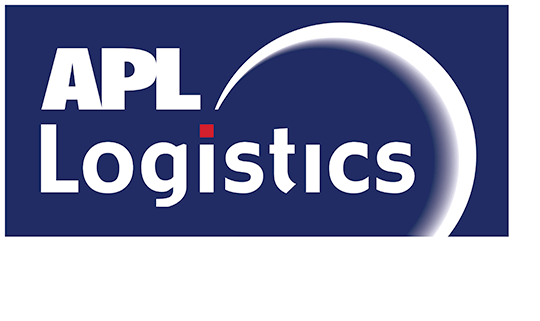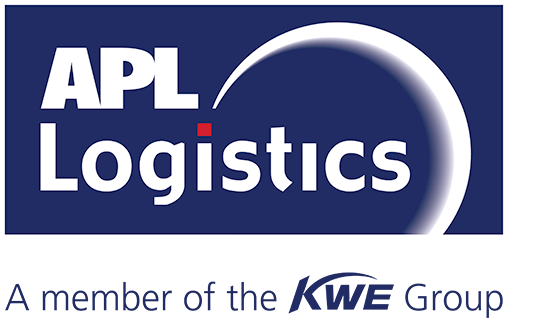April 2, 2025 in Podcast
Developing the Leaders for Tomorrow
April Chapman:
Hello, everyone and welcome to the APLL Pulse Podcast where you can uncover new insights from the logistics and freight forwarding industry through the seasoned experts at APL Logistics, a global supply chain provider. We’ll help you keep pace with the current topics impacting businesses and advance your logistics strategy. Hello, everyone. I’m your host, April Chapman, and today we will be covering the topic of how we develop leaders for tomorrow. I am so happy to introduce our guest today.
Her name is Deanie Marin Lucchesi, and she is part of our global learning and development team covering our North American region. Deanie and I connect on a lot of levels. I actually come from a background of corporate training as well. When you’ve done a job before and then you watch someone else do it, you come with some high expectations, and Deanie exceeds them all. I consider myself privileged to have been through some of her training courses. So thank you for joining us today, Deanie.
Deanie Marin Lucchesi:
Thanks for having me, and thank you for your kind words. That’s so generous. Thank you.
April Chapman:
All right, well, let’s jump into our first question. First question I have for you today is can you define leadership development and explain why it is important for today?
Deanie Marin Lucchesi:
Gosh, there’s so many facets to leadership development, and it’s really about continuous process of equipping individuals with the right skills, the right mindset, and really the ability to lead effectively. Today, it’s more critical than ever. Technology is advancing, the rise of Industry 4.0, and the shifts that are happening in the workforce dynamics. We’re no longer in this era where leadership is we’re going to follow people because it’s like, “I’m the boss. I said so. That’s why.”
The way of authority and hierarchy has really gone away. Instead, it’s about hybrid leadership. It’s this blend of traditional leadership with this digital fluency, EI, emotional intelligence, and the agility piece of it. That’s really the new standard.
One of the things that goes along with that in managing is managing this multi-generational workforce now. That includes multiple generations like the Boomers, the Gen Xers, and let’s not forget about the more recent, the Millennials in addition to those Gen Zs.
Those newer generations really value different things than the Boomers and the Gen X. They value purpose-driven work. They want flexibility. They want the opportunity to be innovative in the things that they’re doing.
April Chapman:
So do you find it hard to have a class that has all those different kinds of generations in there then? Are you structuring things thinking about that at all or how you approach it?
Deanie Marin Lucchesi:
At the end of the day, not really. Because at the end of the day, it’s really about connections. It’s about empathy. It’s about talking to people as humans, because everybody wants to be known as a person first, not because they come from a certain generation.
April Chapman:
Right, right. Yeah, that’s a good point. That’s a good point. Okay, so my next question for you then is what do you think the essential skills are for future leaders that they really need to possess in order to meet all of those needs that you just mentioned? What are they going to need to have?
Deanie Marin Lucchesi:
Connection. It’s really about what is your ability to connect with others, how are you influencing, and how are you adapting. The essential skills also include this thing, conversational intelligence. It’s about asking the right questions, really listening. Not just like, “Yeah, yeah, yeah, I hear what you’re saying,” but listening to those nonverbal cues, making decisions that’s driven by data, and at the core of it is really keeping those human relationships. And that’s so important.
The other thing is this new hybrid leadership that we have now about managing people both in person and virtually. It’s a tough balance, and how do you lead those with empathy in addition to critical thinking, resilience, fail fast, fail forward, embracing that continuous growth, and then figuring out how to work cross-functionally and collaborate with one another. That’s beyond those silos. That’s across regions from other parts of the world if you’re a global company and working with diverse teams.
April Chapman:
One of the points that you brought up was just being this collaborative approach and how we’re hybrid. I really admire how this team handles the fact that we’re also spread out. It used to be a lot of training could happen, and that is harder to make happen these days. And I think it’s harder in the trainer seat to keep energy and to keep people engaged and motivated. But your whole team really does a really good job with that. And so I just want to give you a little bit of kudos because I think it’s a harder world to train in than it might’ve been 20 years ago. So well done.
Deanie Marin Lucchesi:
Thank you for that.
April Chapman:
All right, let’s jump into talking about how our company, how is APL Logistics fostering leadership development? What are we doing here?
Deanie Marin Lucchesi:
Really, leadership is not just about strategy. It’s about those conversations. How are you connecting with people? How are you expressing empathy? Are you coaching your people effectively? And how are you driving engagement through the dialogue that you’re having with the individuals. In this remote world that we live in and this hybrid model that a lot of managers had to pivot very quickly, folks are really learning to understand that you can do both and you can do both effectively.
One thing in particular, my direct supervisor, my line manager is on the other side of the world. He’s in Singapore. I have never met him in person, and I’ve worked for this company for almost three years. So it can be done. And we have one of the strongest relationships that I’ve probably had with anybody that I have ever worked with or worked for, and he’s on the other side of the world.
So it can happen. It’s about how are you managing remotely, how are you developing conversations to foster that culture of growth? So that’s with the coaching and the mentoring, and then giving people the opportunity to have experiences that will allow them to grow.
April Chapman:
Yeah, I really enjoyed the Leadership 4.0 class that you guys offered. I thought it had a really good depth of knowledge for people and ability to connect again with people all over the company that you wouldn’t necessarily work with otherwise and now you’ve built relationships with because of the way it’s designed for us to talk and get to know each other throughout the process.
Deanie Marin Lucchesi:
It’s really allowed an opportunity for people to learn other individuals throughout different parts of the business that aren’t just directly related to the site that they’re sitting at.
April Chapman:
So what are some ways you think that we can create a culture that really promotes all that leadership growth?
Deanie Marin Lucchesi:
I really feel like leadership today, it’s not built on policies and procedures, it’s built on connections. It’s built on conversations. It’s built on how are we empowering managers to have these developmental conversations with employees, and are we creating those spaces for that informal learning to happen, things like coffee chats or peer coaching, how are we telling stories through the things that people are learning.
And really about creating an environment where people feel comfortable to share, how are we sharing ideas, and are we asking tough questions and are we responding in a way that is empathic, that is driving connection, that’s driving change, and allowing people a platform to be able to share their ideas so we can get to better results.
April Chapman:
I mean, I think working on all of those things really drives a strong culture of learning, a culture of people. I think you have to be a person who wants to continue learning, to continue growing, and I think a culture of that where we have time and the company has made efforts to give us these opportunities, it creates that learning type of culture that promotes growth too.
Deanie Marin Lucchesi:
The company’s done a really great job of investing in our department. My department didn’t exist three years ago, and the company has really put forth, I’m so happy to be here, has really put forth resources into growing our department so we could in turn grow the talent in-house and be able to grow our leaders and to be able to put all of our efforts into making sure people are growing professionally.
April Chapman:
We’ve won a lot of awards this last year with the employer of choice. I mean, I think we’re up to 34, or another one might’ve just come in this week, so maybe 35. It’s pretty amazing, and I’m really excited about it. But how do you think the programs that we’re offering, this Leadership 4.0 or some of these other ones that you’ve mentioned, how do you think they’re contributing to those wins really?
Deanie Marin Lucchesi:
Leadership 4.0, that’s a flagship for our department, and there’s three modules to that. We focus on leading team. Actually first, it comes leading self, leading team, and then leading business. Really, it’s about developing leaders who can lead by inspiring, engaging through those authentic conversations. These classes allow us to foster a feedback rich culture where employees feel valued and they feel heard because we’re providing that space for them to contribute in that way.
And it also gives us an opportunity to create an innovation driven and future ready workforce, to make sure that we’re also attracting the top talent out there, to be able to bring them in-house and see their productivity come to life. And so it’s about conversational leadership. With that, we’ll see higher employee engagement, innovation, and a key area too is that retention piece of it.
April Chapman:
Well, and it hits on our maxims too. I mean, because one of our maxims was becoming employer of choice. It’s just been a focus for our company, but we also have accountability in there and there’s accountability to each other and the accountability of what our company has taken on, the accountability to provide us these opportunities. And then that has come back because the employees that are being interviewed for these are the ones who are saying that they’re getting what they need. So thank you for being a part of that. I really do appreciate it.
Deanie Marin Lucchesi:
It’s really a pleasure. I absolutely love what I do. This is one of probably the best team that I’ve ever had the opportunity and privilege to work with, despite the fact that we are literally all over the world and I’m the only one that sits in North America. But our team is small, but we are mighty and we pump stuff out. And the things that come out, I’m really honored to be able to have an impact and make a ripple effect for those programs.
And it’s cool because it’s not just happening in North America. The programs that roll out of our department, these are global programs. And so the same thing that I’m sharing with folks in North America is also being shared with people in Southeast Asia, in EMEA, in Singapore, Latin America. And so it truly is global.
April Chapman:
Right. And you know Shaw, who you report to, he was recently interviewed in Singapore with the finance minister of the PM’s Office and just highlighted the importance of education within companies and what we can offer. So it’s really pretty exciting. Exciting things are happening in your guys’ area. So it’s exciting to have you on here. For my final question for you, what lessons have you learned and what advice would you give to aspiring leaders?
Deanie Marin Lucchesi:
Leadership is about adaptability. The future is so uncertain. We don’t know what is going to come down the pipeline. We don’t know what’s going to happen tomorrow. And so you’ve got to be comfortable with that ambiguity and just sort through that. Another thing, continuous learning nowadays is a non-negotiable. If you are not keeping abreast with the things that are coming out, I wouldn’t say it has to be cutting edge technology, but if you’re not keeping your skills up to par, you’re going to become obsolete.
And so it’s really about influence. How do we inspire? How do you empower? Because it’s not about dictating anymore. And really advice that I would give for aspiring leaders is just master the art of conversation. The words that you share will shape your team’s confidence. It will increase their engagement. It will lead to their success, being empathic, being there for them, not only as an employee, but first and foremost, as a person, staying adaptable.
We have that restart, refresh, unlearn, maybe some of the things that you’ve learned to give yourself a new perspective and relearn things from a different perspective. Kind of like when you power down your iPhone, you need to give it a reboot. You’re kind of like, I want to give it a reboot, a refresh, look at things from a different lens. Another thing that comes to mind is really developing through a coaching mindset.
Coaching is about helping people get to where they need to be by not telling them what to do. And so it’s about helping others think about it as opposed to giving direction. And the last thing that I’ll wrap up with is find a mentor and be a mentor. Really Great leadership is a cycle of learning and giving back. It’s a give and take. It’s not all about take, take, take, and it’s not all about give, give, give.
And mentoring doesn’t have to be somebody who’s more senior. I find as I become more seasoned, I’ll use that word, in my career, this younger generation coming in has a lot to teach me about technology. One thing that comes to mind is Canva. I don’t know how to use that. I come from a PowerPoint generation. And so it’s about finding a mentor and being a mentor. And mentoring isn’t about just somebody who’s older than you.
As you become older, you’ve got to keep those skills fresh. And so really it’s just about just pulling that all together, mastering the art of conversation, staying adaptable, developing a coaching mindset, and really figuring out how to be a mentor for those, and then how to be a mentor yourself so you can keep that learning going.
April Chapman:
Yes, yes. You’re beating the drum that I love to beat because I am a big, big fan of mentoring, always reaching out ahead of you, reaching behind you. There’s always somebody. You have something, everyone has something that they can be sharing. So I am so thankful that you came today and that you’re willing to come on the podcast and talk to us about your area of expertise. So thank you for joining us.
And for all of you out there, join us next time on the APLL Pulse Podcast. Thanks for joining us today. If you like what you heard or if you have any questions about today’s episode, reach out to us at global_marketing@apllogistics.com. Make sure to subscribe to us on your favorite podcast apps. You’ll also find us on LinkedIn or visit us at apllogistics.com. We’ll see you next time on the APLL Pulse Podcast.
Thanks for joining us today. If you like what you heard or if you have any questions about today’s episode, reach out to us at global_marketing@apllogistics.com. Make sure to subscribe to us on your favorite podcast apps. You’ll also find us on LinkedIn or visit us @apllogistics.com. We’ll see you next time on the APLL Pulse Podcast.
Listen on Spotify Listen on Apple Podcasts


